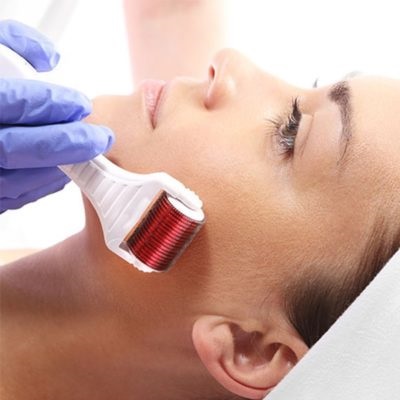Derma rolling, a form of microneedling, has emerged as a powerful tool for skin rejuvenation. It helps reduce fine lines, acne scars, enlarged pores, and pigmentation by stimulating collagen production. While many people attempt this treatment at home, the results often vary significantly when compared to professional procedures. One of the main factors that determine the success of this treatment is the quality of the device used—specifically, the clinic-grade derma roller. When opting for professional Derma Roller Treatment In Islamabad, patients benefit from medical-grade tools and expert precision that deliver noticeably improved outcomes.
Understanding the Derma Roller
A derma roller is a handheld device covered with hundreds of tiny needles. When rolled over the skin, these needles create controlled micro-injuries that stimulate the skin’s natural healing process. This boosts collagen and elastin production, resulting in smoother, firmer, and more youthful skin. However, not all derma rollers are created equal. The difference between a basic consumer model and a clinic-grade derma roller can be profound in terms of safety, results, and long-term benefits.
Key Features of a Clinic-Grade Derma Roller
1. Superior Needle Quality
One of the defining characteristics of a clinic-grade derma roller is the quality of its needles. These needles are typically made from surgical-grade stainless steel or titanium, which are highly durable, corrosion-resistant, and less likely to cause skin trauma. Lower-quality rollers may use cheaper materials that bend, rust, or dull quickly, increasing the risk of skin tears or infections.
In a professional setting, sharp and uniformly aligned needles ensure that punctures are clean and precise, enhancing both safety and efficacy. Blunt or misaligned needles can scratch the skin rather than puncture it, leading to irritation and suboptimal healing.
2. Adjustable Needle Lengths
Consumer-grade derma rollers usually have fixed needle lengths, often between 0.2 mm and 0.5 mm. These are suitable for enhancing product absorption but have limited effect on deeper skin concerns. Clinic-grade rollers offer a range of needle lengths, from 0.25 mm up to 2.5 mm, which can be adjusted based on the treatment area and skin condition.
Longer needles are effective for addressing deep acne scars, stretch marks, and severe wrinkles, but they require professional expertise to use safely. At clinics, dermatologists determine the appropriate needle length based on the patient’s needs, maximizing results while minimizing risk.
3. Sterility and Single-Use Policy
In clinical environments, derma rollers are either fully sterilized before use or designed as single-use devices to eliminate any risk of contamination. This drastically reduces the chances of bacterial infections or cross-contamination.
Home users often overlook the importance of proper disinfection or reuse derma rollers beyond their recommended lifespan. This compromises the hygiene of the device and can lead to adverse effects. Clinics adhere to strict sterilization protocols, offering peace of mind and safer treatments.
4. Controlled Treatment Environment
Clinic-grade derma rolling isn’t just about the tool—it’s also about the environment. Professional treatments are performed under sterile, controlled conditions with medical supervision. The skin is carefully cleansed, prepped, and numbed if needed. The use of gloves, disinfectants, and sterile tools ensures that there is no external bacterial exposure during the procedure.
In contrast, home treatments may take place in environments with varying cleanliness levels. Improper handling of the device or failure to maintain a hygienic setup increases the likelihood of complications.
5. Professional Expertise and Technique
Even with the best device, technique matters. Derma rolling at home may lead to inconsistent pressure, improper angles, or rolling too many times over the same area. Overuse or misuse can cause microtears, delayed healing, and hyperpigmentation.
Clinic-grade treatments are performed by trained dermatologists or certified aestheticians who understand skin anatomy and how to navigate delicate areas safely. Their precise technique ensures even coverage, consistent pressure, and appropriate rolling patterns, leading to more uniform and effective outcomes.
6. Customization Based on Skin Type
A professional clinic evaluates your skin type, concerns, and medical history before proceeding with the treatment. This personalized approach ensures that the procedure is tailored to your specific needs, minimizing the risk of adverse reactions and improving results.
Clinic-grade derma rolling is often paired with skin-nourishing serums such as hyaluronic acid, vitamin C, or growth factors that are absorbed deeply into the skin during the treatment. These medical-grade serums amplify the rejuvenating effects and promote faster healing, something not easily replicated with at-home kits.
7. Post-Treatment Care and Monitoring
A clinic’s responsibility doesn’t end once the roller is set aside. Post-treatment care plays a vital role in recovery and results. Professionals provide guidance on aftercare routines, recommend appropriate skincare products, and schedule follow-ups to monitor your progress.
In contrast, individuals who perform derma rolling at home may lack knowledge of how to care for their skin after the procedure. This could lead to unnecessary irritation or infection due to incorrect product use or poor hygiene.
Benefits of Clinic-Grade Derma Roller Treatment
-
Faster Results: Due to better tools and expert technique, visible improvements occur sooner.
-
Safer Procedures: Reduced risk of scarring, hyperpigmentation, and infections.
-
Effective for Advanced Skin Issues: Such as deep scars, wrinkles, and stretch marks.
-
Consistent Results: Uniform penetration ensures smoother and more predictable skin texture.
-
Improved Product Absorption: Medical-grade serums enhance collagen production and skin nourishment.
Why Home Rollers May Fall Short
Despite their affordability and convenience, home-use derma rollers have significant limitations. Many users overuse the tool, fail to sanitize properly, or don’t follow correct techniques, resulting in minimal results or skin damage. Additionally, they do not have access to professional serums or customized protocols that are key to maximizing microneedling benefits.
Over time, the cost of replacing at-home rollers, managing side effects, and compensating for poor outcomes may outweigh the investment in a professional treatment.
When Should You Opt for Clinic-Grade Treatment?
You should consider a professional derma roller session if you:
-
Have moderate to severe acne scars or pigmentation
-
Need treatment on sensitive or hard-to-reach areas
-
Have a darker skin tone and want to avoid post-inflammatory hyperpigmentation
-
Desire faster and more visible results
-
Are unsure about proper technique or aftercare
-
Have had poor results from at-home devices
For individuals seeking safe and reliable Derma Roller Treatment In Islamabad, it is strongly recommended to visit a reputable facility. A trusted name in advanced skincare solutions, SKN Cosmetics clinic provides customized, clinic-grade derma rolling treatments using high-quality tools and professional supervision. Their commitment to excellence and hygiene ensures that patients receive optimal results with minimal risk.
Last Update: May 26, 2025






